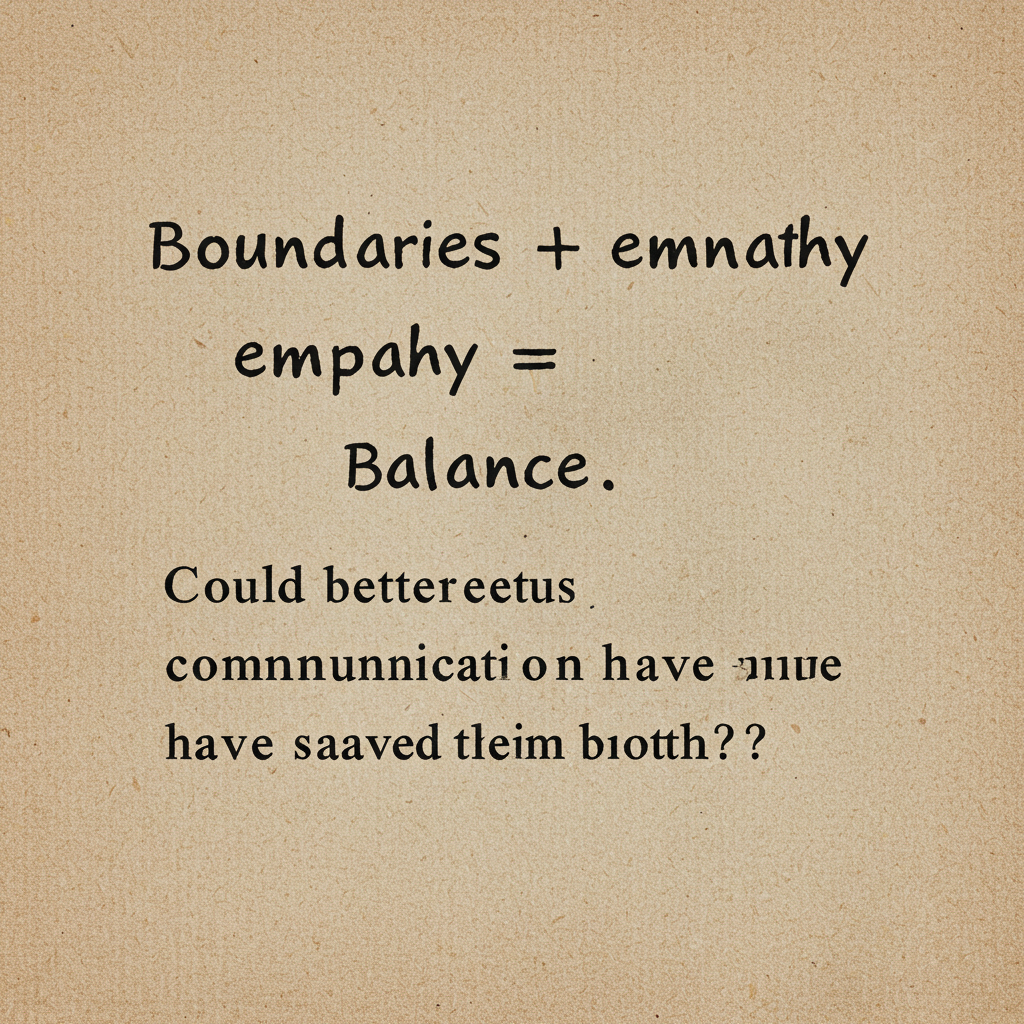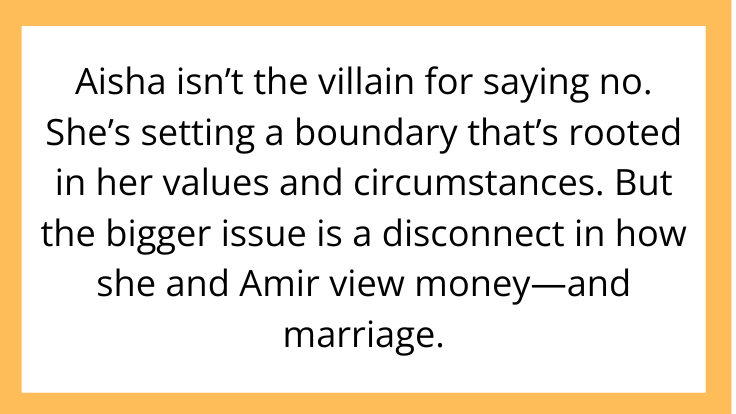AITAH for Not Letting My Husband Use My Inheritance to Pay Off His Debt?
When you marry someone, you agree to share your life—but does that include your personal inheritance? In this AITAH scenario, a woman’s financial boundary sparks a serious marital rift. Is she protecting herself, or being selfish?
Let’s explore the situation that has Reddit buzzing.
The Situation: A Windfall and a Wedge

A 34-year-old woman—let’s call her Aisha—received a substantial inheritance from her late grandmother. The amount wasn’t disclosed, but it was significant enough to change her financial future: pay off her student loans, buy a home outright, and build long-term savings.
Her husband, Amir, 36, has been struggling with debt for years. He racked up over $80,000 in credit card balances and personal loans from a failed business venture he started before they met. While he’s been making minimum payments, interest has ballooned the amount.
When Aisha received the inheritance, Amir assumed they’d use it to wipe out his debt and start fresh together. But Aisha had other plans.
The Conflict: “This Is Mine, Not Ours”

Aisha made it clear: the inheritance was hers alone. Her grandmother had intended it to give her stability and security, not to clean up someone else’s mess. She offered to help with some joint expenses—like putting a down payment on a new house—but she refused to pay off Amir’s personal debt.
Amir felt blindsided and hurt. He argued that marriage is a partnership and that one partner’s financial win should benefit both people. He accused Aisha of acting single while being married.
Aisha disagreed. “We don’t share a joint account,” she explained in her Reddit post. “I never agreed to take on his debt. We’ve always managed our own money separately.”
The tension grew so intense, Amir moved out temporarily to “clear his head.”
The Debate: Shared Life, Separate Accounts?

The Case for Aisha: Boundaries, Not Betrayal
Aisha isn’t wrong to protect her financial future—especially when the money was specifically left to her. Legally, inheritances are typically considered separate property unless they’re commingled. Morally, it’s reasonable to expect that her husband would take responsibility for debts he accrued before their marriage.
This wasn’t a surprise decision either. Aisha says they’ve always managed their finances independently, and she made it clear from the start that she wouldn’t be responsible for his past financial choices.
Paying off Amir’s debt might also reinforce bad money habits, especially if the debt was due to mismanagement and hasn’t been addressed through counseling or long-term planning.
The Case for Amir: Marriage Means Merging
On the flip side, Amir’s argument comes down to partnership. He believes marriage means mutual support—not keeping score. From his perspective, Aisha’s refusal to help is a betrayal of marital unity.
He’s not asking for a new car or luxury vacation—he’s asking for relief from crushing debt that impacts them both. If they plan to buy a house, have kids, or build a life together, his debt will affect them jointly whether the accounts are technically separate or not.
He sees her inheritance as an opportunity for both of them to move forward stronger. Instead, he feels like she’s drawing a financial line in the sand.
Reddit Reacts: Mixed, but Mostly in Her Favor

The r/AITAH community leaned toward Aisha’s side. Most commenters agreed that she’s not responsible for fixing her husband’s financial mess—especially since it predated the marriage and wasn’t disclosed early on.
“She’s not a villain for honoring her grandmother’s intentions,” one user wrote. “Debt is not contagious. Amir needs to take ownership.”
Others pointed out the risk of financial enmeshment. “Once you start covering someone’s bad habits, it can set a dangerous precedent.”
Still, a few commenters urged empathy: “If you plan on being married forever, how long do you wait before saying ‘what’s mine is yours’?”
Financial Compatibility: The Unspoken Marriage Test

Money is one of the leading causes of divorce—and this story is a prime example why. Inheritance or not, Aisha and Amir never aligned on financial values.
It’s not just about dollars. It’s about:
-
Responsibility
-
Transparency
-
Long-term planning
-
Emotional security
Aisha values financial independence and legacy. Amir seems to value financial unity and mutual aid. Both are valid—but clashing.
What Could They Have Done Differently?

For Aisha:
-
Offer to sit with Amir and explore debt counseling or consolidation together.
-
Set boundaries while still expressing empathy—not judgment.
-
Propose a financial planning session with a neutral third party.
For Amir:
-
Respect Aisha’s right to set limits, especially on money that isn’t jointly earned.
-
Focus on taking responsibility instead of shifting blame.
-
Be honest about how debt impacts the relationship—not just himself.
The Verdict: Not the Villain, But the Relationship Needs Work

Aisha isn’t the villain for saying no. She’s setting a boundary that’s rooted in her values and circumstances. But the bigger issue is a disconnect in how she and Amir view money—and marriage.
If they can’t bridge that gap, the inheritance won’t be the only thing that divides them.



